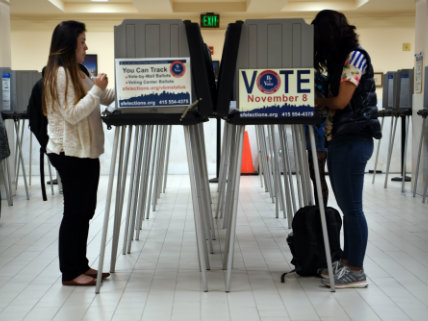Ballot Measure Calling for Price Controls on Prescription Drugs Narrowly Fails After $125 Million Fight
Major fight between special interests ends with narrow win for "No" campaign in Prop 61. It was the most expensive ballot initiative campaign in the country.

When the dust cleared and the votes were counted in the nation's most expensive ballot initiative fight, voters in California narrowly defeated a proposal to set price limits for prescription drugs.
Campaigns in favor and against Proposition 61 already had spent $125 million by Nov. 2, about a week before the vote, and the election may go down as the most expensive ballot measure in U.S. history when all the spending is tabulated. In a year when big money didn't have much of an obvious effect on the presidential race, special interests on both sides paid handsome sums to convince Californians to support or oppose Prop 61.
If you're not from California and haven't been inundated by millions of dollars' worth of campaign ads, though, you might be wondering: just what is Prop 61?
Pushed by progressive groups and vocally backed by U.S. Sen. Bernie Sanders, Proposition 61 would have banned government-run health insurance programs, like California's version of Medicaid, from buying drugs at higher prices than those paid by the federal government.
Advocates said the measure would ensure taxpayers were getting the best bang for their buck and would prevent drug companies from making bigger profits, but opponents—including drug companies, but also the California Medical Association and other groups representing doctors, patients, and hospitals—warned that manufactures could refuse to pay the lower prices, potentially leading to shortages. When the nonpartisan California Legislative Analysts Office took a look at the proposal, they concluded that there was no way to know whether the price controls would actually save money.
In the end, voters sided with critics of the measure. With all precincts reporting on Wednesday afternoon, 53.7 percent of voters cast ballots against Prop 61.
"Voters did their research and recognized Prop 61 was a seriously flawed measure," said Kathy Fairbanks, spokeswoman for the No on Prop 61 Coalition, in a statement. "Prop 61 was bad policy that would have harmed millions of patients, veterans, taxpayers and others in California."
Longtime HIV activist Michael Weinstein ran the "Yes" campaign. His organization, the AIDS Healthcare Foundation, gave most of the $17 million raised by advocates for Prop 61. Weinstein is also backing a similar ballot measure that will go before voters in Ohio next November. The defeat of Prop 61 in California might make it less likely that other states follow in the same track, but efforts to use government force to curb drug costs will continue.


Show Comments (344)